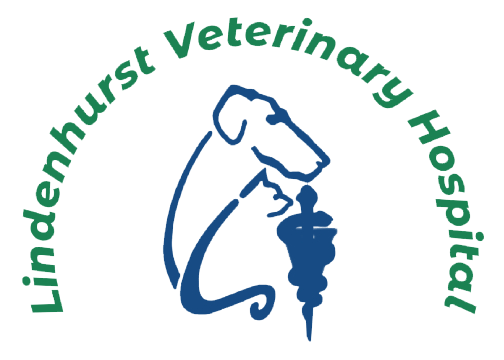A New York State
Veterinary Medical Society
accredited hospital.
As a New York State Veterinary Medical Society accredited hospital, Lindenhurst Veterinary Hospital voluntarily chooses to be evaluated on 900 standards. Veterinary hospitals accredited by New York State Veterinary Medical Society must demonstrate an exceptional level of medical care and client service and they are re-evaluated to make sure they are keeping up with industry updates.
Lindenhurst Veterinary Hospital chose to become New York State Veterinary Medical Society -accredited for a myriad of reasons, including the desire to improve practice operations and team building, update our skills, enhance our credibility with clients and strive for continuous improvement.
Choosing an New York State Veterinary Medical Society-accredited hospital assures pet owners that the hospital they select has the staff, equipment, medical procedures and facilities that New York State Veterinary Medical Society believes are vital for delivering high-quality pet care.
Sometimes pets become too sick to be able to care for properly on an out- patient basis. Pets are also hospitalized while they recuperate from surgery. For these dogs & cats, Dr. Cummins will usually recommend a temporary stay in hospital. This enables us to provide the following treatments:
Most sick pets are not eating or drinking properly, and may be losing fluids through vomiting or diarrhea. Their clinical exam may reveal them to be significantly dehydrated. Providing balanced electrolyte solution intravenously is the most effective way to correct this problem. This is necessary for the healing process to begin, and quickly improves patient comfort. I/v fluids are administered via a catheter taped into the patient’s front leg, or sometimes the jugular vein. Most patients tolerate the catheter well, but they need to be confined to a cage or a run. Some patients will need “Elizabethan collars” to prevent them from pulling the catheter out.
Some medications are best given directly into the bloodstream to increase their concentration and speed of action. This is easy to do repeatedly when patients are maintained on i/v fluids. Hospitalized patients may also be medicated by intramuscular or subcutaneous injections. Some patients may need regular pilling, which may be difficult for their owners to do at home.
Patients with severe coughing benefit from steam inhalation and twice daily nebulization therapy. The nebulizer generates a steam mist containing a strong antibiotic or bronchodilator which is delivered by a face mask so that it is inhaled deep into the lungs. Pets with pneumonia or kennel cough can be cured in 3-5 days in this way, as opposed to a 10-14 day course of oral antibiotic. Acute heart or respiratory failure may require dogs or cats to be hospitalized to be given oxygen delivered into a cage enclosure until they are stable enough to undergo testing and other treatments.
This exciting new device allows us to alleviate pain and speed healing wounds and chronic inflammatory conditions. (See Therapeutic laser heading) Patients hospitalized for surgery or injuries can be treated with the Therapeutic laser.
As our patients proceed through treatment, we usually need to monitor how well their blood chemistries and cell counts are responding to treatment. Our in- house lab enables us to get these results, stat. Some patients will need follow- up with X rays, and for those requiring a sonogram, we schedule with our on- call mobile veterinary sonographer.
This is all-important for the outcome of a hospital stay. Fluids need to be monitored and adjusted, medications administered, and bandages changed, wounds redressed. Sick pets may need to be syringe fed or encouraged to eat. They get regular exercise and walks outside to “do their business”. And then we have to clean up after them, even bathe them, after they vomit or have diarrhea. All their functions are recorded and any problems are brought to the doctor’s attention.
Some illnesses are potentially contagious to other cats or dogs, so we may need to keep them for their treatment in a small ward away from the other pets coming in to Lindenhurst Veterinary Hospital.
created with
Joomla Website Builder .